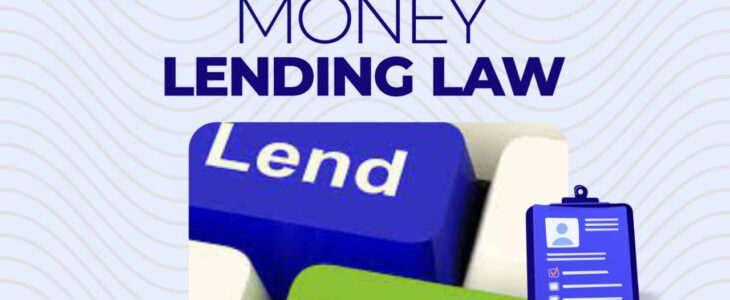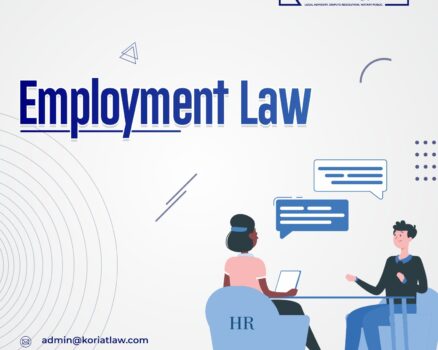
1. The current trends of Money Lenders’ operations in Nigeria
The year 2022 will be an important milestone in the history of money lending business in Nigeria. As of the time of this publication, 1st week of December 2021, money lenders operate with unfettered freedom and less regulatory supervision in most states of the federation, given their status as state-licensed businesses unlike other federal-licensed micro lending businesses, like micro-finance banks.
Currently, it is relatively cheaper and faster to set up a money lender company, especially when compared with the requirements, costs and timeline for setting up a micro-finance bank, which is regulated by the Central Bank of Nigeria (“CBN”). From our experience in registering and processing the certificate and licence for money lenders, the total costs for setting up a money lender business in Nigeria is less than N5 Million. The share capital requirement for a money lender is N20 Million and, apart from Lagos State which insists that an applicant money lender company must have at least two (2) directors, in other states of Nigeria and the Federal Capital Territory (FCT), a sole director company is qualified to be licensed, subject to meeting other legal requirements for setting up a money lender company.
Although the respective Moneylenders Laws of the 36 states of Nigeria and the FCT provide for operational guidelines including record-keeping obligations, issuance of loan agreements, payment receipts and statement of loan accounts, maximum rate of interests, periodic filing of returns, prohibition against unlicensed and other bad practices in moneylending business. However, the regulatory monitoring and supervision of this lending subsector to ensure compliance is still very much weak and this lapse has led to several reported cases of dubious and unethical practices by some money lenders, otherwise known as “loan sharks”.
It has been observed that some money lenders in Nigeria rarely comply with the maximum limits of loan interest charges imposed by law, the record-keeping and reporting obligations under Moneylenders laws as well as their statutory duties to issue payment receipts, statement of loan accounts and data privacy obligations under the relevant laws.
A good number of money lenders are operating without any valid licence and certificate. Some of the money lenders are alleged to be engaging in very unethical practices in a bid to force loan defaulters and guarantors to comply with repayment agreements. There are other complaints about unsolicited messages from money lenders to persons who are not parties to loan agreements, which raise data privacy and protection issues.
In extreme cases, loan sharks have contacted the parents, friends, colleagues and practically all persons associated with loan defaulters by text messages, emails, social media or other electronic messaging platforms to inform them about the defaulter’s obligation and harass these innocent persons to either pay or asking them to urge the defaulter to pay.
As from the year 2022, it may no longer be a “business as usual” for unethical and sharp practice loan sharks in Nigeria. This is because on the 10th November 2021, the Federal Competition and Consumer Protection Commission(“FCCPC”), the Independent Corrupt Practices Commission (“ICPC”), the National Information Technology Development Agency (“NITDA”) and the Central Bank of Nigeria (“CBN”) launched a joint investigation into what the FCCPC described as “continuing complaints about questionable repayment enforcement practices including public shaming and violations of privacy, arbitrary, unjust, unreasonable, or exploitative interest rates and or loan balances calculations, harassment, and failure of consumer feedback mechanisms among others..” which “have led to significant and understandable consumer aggravation and dissatisfaction”.
The FCCPC noted further that “the initial inquiries demonstrate that many of the purported lenders are not legally acceptably established or otherwise licensed by the appropriate authorities to engage in the services they ostensibly provide” and that the regulators resolved “….to collaborate, pursue urgent enforcement action against already known violators while investigating others, as well as criminal prosecutions where applicable.”
It is very instructive to note also that a joint task-force of analysts and enforcers was also created and immediately activated.
It is noteworthy that in furtherance of the joint regulators’ resolutions from the November 10 meeting, and the FCCPC’s role in coordinating the government’s response consumers’ complaints against loan sharks, the FCCPC has created a dedicated email address (lenderstaskforce@fccpc.gov.ng) to receive complaints, and or any information about any experiences, identity of businesses or individuals involved in these unfair trading practices, or any other relevant information that may be helpful to the investigation.
2. Tougher Anti-Money Laundering Regulatory Supervision by the Special Control against Money Laundering (“SCUML”), the Economic and Financial Crimes Commission (“EFCC”) and the Independent Corrupt Practices (and Related Offences) Commission (“ICPC”)
The Nigerian government is very much committed to the global fight against terrorism finance and movement of funds derived from illicit sources. Post-incorporation registration with the SCUML is mandatory for all companies and Non-Governmental Organisations (“NGOs”) regarded as Designated Financial Institutions (“DFIs”) and a prerequisite for opening and operating a bank account in Nigeria.
Therefore, some banks may require a money lenders to present SCUML certificate, amongst other requirements, before a bank account will be opened for the business.
Currently, the online platform of SCUML does not have money lenders as part of the drop-down bar of classes of businesses who can register online. From our experience, most SCUML registrations for money lenders are mainly done offline.
It is expected that, from 2022, the SCUML, EFCC, ICPC and the other law enforcement agencies will be very much alive to their duties to investigate, detect and ensure that funds used for money lending business in Nigeria pass anti-money laundering, counterfeiting and terrorism (“AML/CFT”) tests. Where necessary, the agencies may arrest and prosecute violators.
It is also expected that SCUML will amend its registration portal form beyond what is presently available online to accommodate money lenders.
3. Much Tougher Regulation of by the Federal Competition and Consumer Protection Commission (“FCCPC”)
The FCCPC is an agency of the Federal Government which replaced the Consumer Protection Council and vested with the mandate under Section 17 of its enabling law to, amongst others, protect and promote the interests and welfare of consumers and to investigate and prohibit restrictive or unfair business practices in Nigeria. The FCCPC was established by the FCCP Act which came into force on 1st February 2019.
As from 2022, we expect the FCCPC to take a tougher approach to consumer credit with potential clampdowns on poor business practices by erring and non-compliant lending businesses. It is expected that the FCCPC’s supervision will be hands-on and that the agency closely monitors how money lenders treat their borrowers and loan guarantors to ensure that the lending businesses engage in fair trade practices and putting consumers’ interests first.
Some of the statutory powers of the FCCPC which may be wielded in supervising or regulating money lending activities are as follows:
- Power under Section 18(1)(b) to prevent the circulation of goods or services which constitute a public hazard or an imminent public hazard;
- Power under Section 18(1)(c) to compel any regulated individual or company to comply with the provisions of the FCCP Act;
- Power under Section 18(1)(f) to seal up any premises on reasonable suspicion that such premises contain, harbor or are being used to produce or disseminate goods or services that are fake, substandard, hazardous or inimical to consumer’s welfare in collaboration with relevant sector relators;
- Power under Section 18(1)(g) and (3)(d) to publish the reports containing the names of defaulters in order to warn the public members and declare any business practice as abuse of a dominant position of market power, upon carrying out investigation;
- Power under Section 18(1)(h) to make regulations relating to the charging and collection of fees, levies, fines and imposition of administrative penalties;
- Power under Section 8(3) (a) and (b) to prohibit the making or performance of or to order the termination of any agreement or arrangement which contravenes the Act;
- Power under Sections 27 and 28 to search any premises where the contravention of the FCCP Act is believed to have or likely to take place and to take out a search warrant issued by a Judge ex parte (i.e. behind the company whose premises is to be searched);
- Power under Sections 18(4) and 33 to summon, call and examine witnesses or documents and to take out summons to compel the attendance of anyone to attend and give evidence or produce document;
So, any money lender seeking to avoid FCCPC investigations and sanctions must have clear dispute resolution channels and promptly resolve consumer’s complaints and document its processes, in addition to putting in place a legal compliance team to ensure that the business is building ethical culture and not just a box ticking culture.
4. Much Tougher Regulation of by the National Information Technology Development Agency (“NITDA”)
NITDA is a federal agency mandated by the National Information Technology Development Act 2007 (“NITDA 2007”) to establish standards, guidelines and frameworks for the development, standardization, and regulation of Information Technology practices in Nigeria.
In pursuance of the foregoing mandate, NITDA made the Nigeria Data Protection Regulation 2019(“NDPR”) in recognition of business organizations’ (including money lenders’) migration of their business activities to online platforms and in cognizance of the concerns of privacy and protection of personal data and the grave consequences of leaving personal data processing unregulated.
The NDPR provides for the governing principles that must be followed in processing personal data and specifically provides that no data shall be obtained except the purpose for which it is obtained is made known and consented to by the data subject. The NDPR gives NITDA the power to impose penalty on defaulters for non-compliance up to a maximum of N10,000,000 (Ten Million Naira) or 2% of the defaulting company’s annual gross revenue, whichever is greater.
NITDA has been alive to its supervisory responsibilities and, indeed, has imposed a maximum fine of N10,000,000 (Ten Million Naira) on a particular money lender in Nigeria for privacy invasion. According to a statement credited to the money lender’s solicitors, which stated that “This action was taken after receiving series of complaints against the company for unauthorised disclosures, failure to protect customers’ personal data and defamation of character as well as carrying out the necessary due diligence as enshrined in the Nigeria Data Protection Regulation.”
Earlier this year, on or about 9th November 2021, a bill was sponsored to the House of Representatives against unsolicited messages from money lenders which will stop online loan sharks from sending unsolicited messages to third party individuals and engaging in unfair collection practices, such as subjecting Nigerians (including strangers to loan contracts) to situations where their telephone and email contacts are besieged with unsolicited messages from loan providers.
It is therefore expected that there will be more sanctions for erring and non-compliant money lenders in 2022 if their operational activities violate the Nigerian Data Protection Regulation, best practices and other extant laws.
4. Possible Attempts by the Central Bank of Nigeria to Regulate Money Lenders
Recently, the Central Bank of Nigeria (“CBN”) has been very keen on banning any business activities that the apex bank considers to be related to its mandate but operating without its licence. For instance, the CBN banned commercial banks from recognizing or transacting with any companies or individuals trading in cryptocurrencies. This came shortly after the apex bank banned the operations of bureau de change businesses in Nigeria.
In the wake of the reckless activities of some money lenders, there has been a strong urge on the CBN to intervene and regulate money lenders in Nigeria. The House of Representatives moved a motion on 9thNovember 2021, calling on the CBN to develop regulation for the supervision of money lenders. There is therefore a potential attempt by the CBN to venture into developing regulatory guidelines for money lenders.
However, any attempt or call on CBN to delve into regulatory supervision of money lenders would be misconceived, and ultra vires the apex bank, given that money lenders are not federal-licensed companies, like the micro-finance banks, but State-licensed businesses. The purpose of a money lender, which are licensed by State governments, is to bridge the lending gaps for consumers who would otherwise be ineligible for conventional loans from traditional financial institutions licensed by the Federal Government through CBN, as well as the ease of access to financing for individuals and small businesses.
Therefore, money lenders, like cooperative societies, are outside the purview of CBN’s regulation and unless a money lender’s activities directly encroach on any business aspects within the CBN’s mandate under the Banks and Other Financial Institutions Act (“BOFIA”), any regulation or guidelines developed by the CBN to license, control, penalize, and/or supervise money lenders will be boundary-pushing and ultra vires the bank.
5. Other Expected Changes
Share Capital Requirement: There may be changes in the share capital requirement for registering a money lender in some States like Lagos State and the FCT but this may not be the same across the states of the federation. The share capital for registering a money lender right now is N20 Million but this amount may be increased in Lagos State and, possibly, the FCT.
Number of Directors: Under the Companies and Allied Matters Act 2020, a company can now be registered with just one (1) director and one (1) shareholder. However, there is a move by the Lagos State government to increase the minimum number of directors of a money lending company to two (2) as the Ministry of Home Affairs has consistently refused to accept applications by companies with a single director. This new requirement may be replicated in some other regions, especially the FCT which still currently accepts a one-director company’s application for money lending licence.
Management Qualifications: There may be additional qualifications and requirements for the Managing director, directors and other management staff of a money lender post-2021.
Declarations on oath as to the Source of Funds and Compliance with AML Tests: The anti-graft agencies are fully awake and in constant touch with the licensing authorities to enquire about the sources of funds of money lenders in Nigeria and ensure that funds invested in money lending are not from illicit sources. It is expected post-2021, directors of money lenders would be required to make declarations on oath to the effect that the funds used for money lending business are not proceeds of crime or in furtherance of terrorism.
Monthly Returns Filings: There may be renewed obligations for filing monthly returns to ensure compliance with statutory duty to keep records and the limits prescribed for loan interests charges.
Higher Costs for Money Lender License and Certificate: The costs for certificate and licence, which are currently less than N1,000,000, may be increased in 2022 as part of the control measures for those seeking to invest in money lending businesses.
6. Recommendations
From the above, there is obviously high expectation that there would be inevitable regulatory nudge to lending businesses in the direction that they are required to do business in Nigeria in 2022 and beyond.
In order to avoid being sanctioned for unlawful practices, money lenders need to learn how to do business better, and below is a list of guides or recommendations:
i. Money lenders need to employ a chief compliance officer and have external lawyers to guide them through their operations;
ii. Money lenders need to have responsible organizational culture and value statements beyond box-ticking regulatory compliance;
iii. Money lenders must have well-drafted internal procedures and risks assessment processes;
iv. A privacy policy and data protection policy will be very critical to operating as a compliant money lender in 2022;
v. A trustworthy team and compliant staff are going to be essential assets to a compliant money lender business;
vi. Every money lender must put in place a robust Whistle Blower policy and AML/CFT Policy;
vii. A smart money lender must have dispute resolution mechanism for addressing customers’ complaints promptly and effectively.
viii. A complainant money must be very responsive to enquiries and default notices by regulatory agencies; and
ix. Every money lender must have the benefit of legal advisory support of a law firm.
___________________________________
For more information or comments, please contact admin@koriatlaw.com




